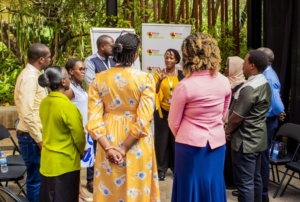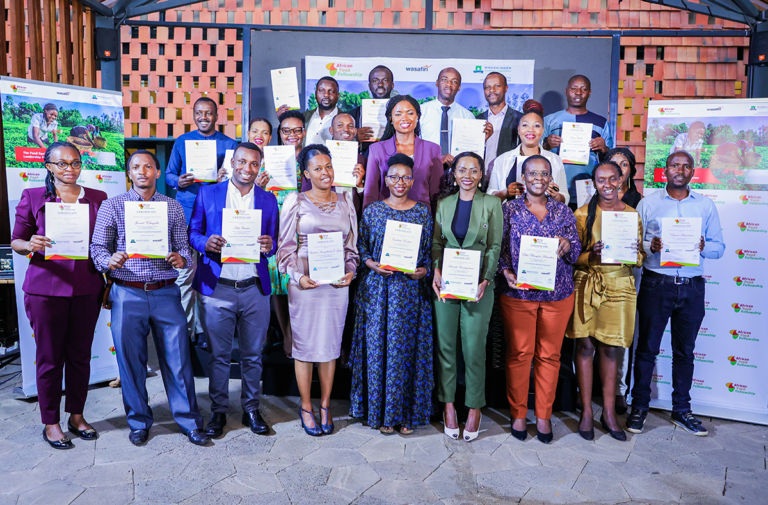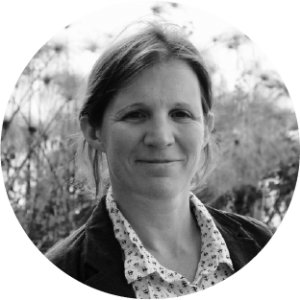Practical approaches to systems thinking: the case for Community Led Research Action (CLRA)

Latest posts
Share:
At Wasafiri, we talk a lot about systems change. We are not alone in seeing the value of systems-based approaches to addressing some of the world’s most complex problems. But our true superpower lies in our ability to bring practicality to using systems thinking. So, we wanted to showcase one such practical approach, the case for Community Led Research and Action (CLRA).
The youth population across Africa is rapidly expanding, presenting valuable opportunities to harness the power and creativity of young people to confront some of the most pressing issues facing the continent, including unemployment, violent conflict, and climate change. Yet young people continue to feel frustrated by immense social pressure to provide for their families, dwindling economic opportunities in overcrowded market spaces, intergenerational divides that create further cleavages between authority figures and youth, and leaders who do not adequately represent the multitude of youth voices and perspectives.
How to flip this youth ‘challenge’ into ‘opportunity’ is not a new dilemma. It feels like a huge, unwieldy, how-long-is-a-piece-of-string type of issue. But what if we could start with one small microcosm of this issue in one location, to catalyse small shifts that could then be shared, amplified, and carried on in ways that led to clearer change over many years?
Enter CLRA
Community-led research and action (CLRA) is a context-sensitive research and action process that is designed, managed, and conducted by community members from marginalised settings who are affected by the issues under study – be that violent crime, climate change, or historical injustices.
It aims to at once amplify these youth voices while also building the critical thinking skills and agency of marginalised young people, to support their identification and articulation of key problems they face and their development and implementation of localised solutions to these problems. It does this through:
- Research: Through CLRA, the most marginalised members of society are facilitated to recognise and expand their own individual and collective agency towards locally-led and durable change. In this sense, CLRA provides robust, detailed knowledge and new insights on marginalised populations, through ethnographic research conducted by people whose lived experiences are the focus of the research endeavour.
- Action: CLRA also serves as an intervention, to promote transformative social change in individuals and groups through improved critical thinking skills, strengthened sense of agency and belonging, and enhanced understanding of the community in which people live. Through CLRA, marginalised individuals use their ethnographic research to co-create relevant knowledge and develop meaningful action to collectively and sustainably address specific problems.
CLRA is guided by four social change dimensions, that not only serve as a framework for designing effective engagement with CLRA participants but equally serve as a framework for measuring individual and group social transformation:
- Diversity of social networks: Wider social networks signify a diversity of perspectives and influence that encourage individuals to think critically and be more tolerant of ‘others’;
- Strength of decision-making skills: Improved ability to non-violently handle difficult situations and emotions and pursue new financial opportunities encourages more considered and reflective decision-making;
- Sense of agency: Transitioning from a feeling of victimhood to a sense of agency promotes greater self-reflection, proactive behaviour, and hope for a future past tomorrow;
- Status within a community: A two-way sense of belonging and acceptance between the individual and his/her community creates a social contract between the two, where both the individual and the community rediscover their shared interest in peace and social cohesion.
CLRA, therefore, allows us to start small, with a group of marginalised young men or women, who may be facing extremely complex and challenging issues – such as land degradation affecting their livelihood opportunities, violent groups infiltrating their peer networks, or lack of access to transparent justice systems – and offer a framework for a practical way of tackling these large issues through small-scale activities.
Small-scale change can then have an amplified impact through CLRA’s systems-based approach to drive forward individual, to community, to society-level behaviour changes.
Individual behaviour change: Linking research to action to identify a problem and think critically about solutions.
CLRA functions as a structured yet informal cycle connecting problem identification – pilot action – evidence – iteration, all led and driven by marginalised community members.
As opposed to more controlled, programme-led approaches where participatory methods to research sit separately from activity design and implementation, CLRA’s informal approach and integrated research-to-action methodology allows it to be guided by the lived experiences of the group members, so that resulting action can focus specifically on their life circumstances and the community dynamics at play. This approach also generates ownership over the solutions and the commitment to carry them forward, long after the CLRA cycle ends.
For example, CLRA participants, whom we call ‘community researchers’ in Mombasa, Kenya, began the CLRA process with a heightened sense of victimhood – they felt that their community ostracised them and that there was nothing they could do about it. These community researchers live in a community in Mombasa that does not receive many basic services or access to sustainable livelihoods, has been plagued by community violence and police harassment, and as a result, many young people fall into lives of crime to make ends meet.
Following their design of research questions to dig into why they felt shunned by their community, the community researchers’ ethnographic research revealed that community members felt fearful around them, because of their history of violence and disturbance.
This research helped the CLRA community researchers to understand that they had a role to play in their feelings of ostracisation, and therefore also had a role to play in changing those perceptions. As noted by one participant:
"This program has opened my mind. I was closed. Now I can think. I lacked that guidance, exposure. Your questions help me to think to see how I can change my life. I make sure I do my homework, so I have something to share when we meet. No one has ever asked me these questions. I can’t stop thinking. It changes the way I feel about my life and what I can do."
CLRA Participant, Mombasa
Community behaviour change: the power of anchoring change in existing social arrangements and structures
CLRA catalyses durable social change and advances inclusive development and stability ‘from below.’ The knowledge, action and evidence that is collectively developed through this process works with and builds on existing local social arrangements and efforts to improve everyday lives and living conditions.
For example, those same CLRA community researchers in Mombasa collectively worked to address the negative perceptions that community members had of them by taking the initiative to re-establish relationships and build more positive connections.
In one instance, the community researchers decided to repaint a local police station, as a show of goodwill and collaboration with an entity that had previously targeted them, and to demonstrate their mentality shift to the community. In the words of one participant:
"CLRA has shown me that I can be independent and equally be my own boss. It has also made me a free thinker. A critical thinker, it has widened my mind very much. I get to think of the possibility of tomorrow and how I can be of help to the community."
CLRA Participant, Mombasa
Society behaviour change: Reinforcing horizontal and vertical connections across segments of society to push for change at multiple levels
Inherent to the social change dimensions are connections forged across individuals and communities (and their governance structures), reinforcing the importance of mindset and behaviour shifts required not just by individuals, but by different layers of society, to achieve lasting and sustainable system changes.
For example, following the repainting of the police station, community members and local officials began to view the CLRA community researchers differently; the mindset change in the young men catalysed a mindset change in their surrounding society, cyclically reinforcing each other.
The local Member of County Assembly (MCA) even asked these CLRA community researchers to join him at an event to counter violent extremism and named them as peace champions within their community.
Repainting a police station and being invited to attend an event by an MCA might feel small, even inconsequential, but when understood within the context of a specific community, a microcosm of the issues faced by young people across Kenya, they are significant and signal longer-term behavioural shifts that lead to other small, but significant behavioural shifts.
CLRA can set in motion longer-term, systems-level changes through these small “wins,” generating momentum and incentivising the system to catalyse more positive change.
So, is CLRA a silver bullet to address complex problems? No. But it can offer a practical framework for working with and through marginalised populations to drive forward their own small but meaningful solutions to complex issues that plague communities across the world.
Photo by Clay Banks on Unsplash










